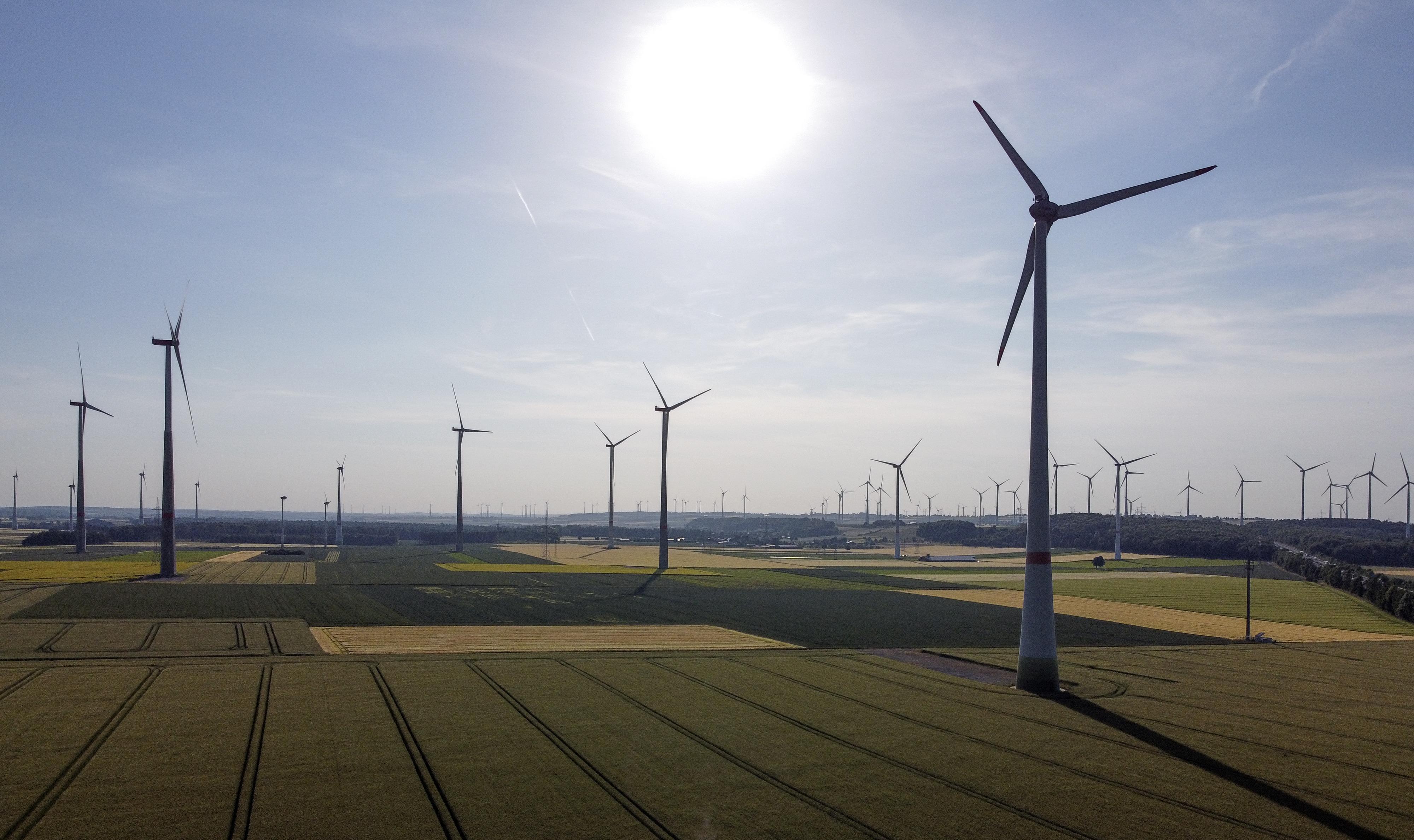 Wind turbines stand at a wind park in Marsberg, Germany, June 15, 2022. (PHOTO / AP)
Wind turbines stand at a wind park in Marsberg, Germany, June 15, 2022. (PHOTO / AP)
PARIS - Annual investments in improving energy efficiency must triple by 2030 in order for the world to remain able to keep global warming below 1.5 degrees Celsius, the International Energy Agency (IEA) said on Wednesday.
Driven by spending on buildings and strong electric vehicle sales, global energy efficiency investment reached a record $600 billion in 2022, the IEA said in its report titled Energy Efficiency: The Decade for Action.
The IEA said that doubling annual energy efficiency progress to 4 percent annually by 2030 would require investment in the sector to rise from $600 billion to over $1.8 trillion by 2030
In 2023, this figure is expected to increase to $624 billion, but the year-on-year growth rate would be lower than in 2022 as the high cost of capital weighs heavily on potential new projects, the IEA warned.
ALSO READ: Report finds world off track on meeting UN energy goals
In its report, published on the occasion of the IEA's 8th Annual Global Conference on Energy Efficiency, the agency said that doubling annual energy efficiency progress to 4 percent annually by 2030 would require investment in the sector to rise from $600 billion to over $1.8 trillion by 2030.
The agency stressed that the 4 percent goal by 2030 would deliver vital reductions in greenhouse gas emissions and at the same time create jobs. According to the report, energy efficiency activities could generate 12 million jobs globally by 2030.
"Importantly, more efficient and lower energy demand supports faster progress towards universal access to modern and affordable energy in emerging and developing economies," it noted.
Also, doubling efficiency progress by 2030 will enhance energy security and help bring access to electricity to more than 800 million people, the IEA added.
READ MORE: Global gas markets rebalancing, to remain tight in 2023, says IEA
The IEA's 8th Annual Global Conference on Energy Efficiency is taking place in Paris between June 7 and June 8. The goal is to speed up progress on energy efficiency.
Participants consider how policy action in areas such as innovation, digitalization and finance can help governments as they turn to energy efficiency to boost affordability, security and climate action.


